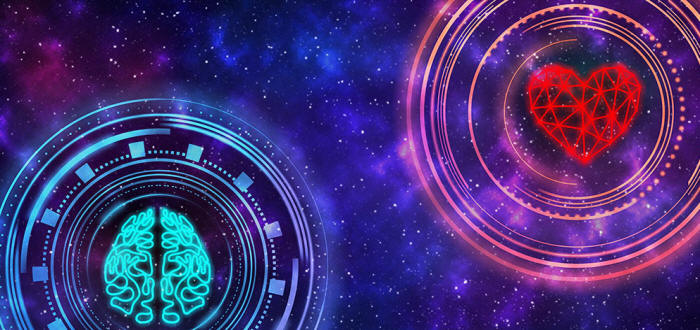|
August 26, 2019 practices heart-based living, it will qualify the 'rite' of passage into the next level of consciousness. Using our heart's intuitive guidance, will become common sense
- practical
intelligence." HeartMath founder
Through many generations, we have heard and been told to listen to our heart when discerning the things that matter.
As parents, many of us have advised our children to listen to or follow their heart when life's meaningful decisions pop up. So, a lot of people feel the heart is a far more effective source of guidance than what our minds alone can offer us.
HeartMath calls this the
intuitive heart...
Evidence for this is the
many thousands of people in a variety of cultures who are
benefitting from this deeper heart connection.
Below, we share some of the science in research HeartMath Institute (HMI) has conducted to help explain the heart-intuition relationship and how this can benefit us mentally, emotionally, physically and spiritually.
This research can help validate what we have believed for a very long time:
A primary definition of intuition is the ability to understand or know something without conscious reasoning.
Of the three types of intuition,
...HeartMath researchers decided to study nonlocal intuition.
Nonlocal intuition cannot be explained by past or forgotten knowledge/implicit processes; or by sensing environmental signals/energetic sensitivity.
In it, study participants' autonomic nervous systems responded in advance of seeing randomly selected pictures intended to elicit a negative or calming emotional response.
HeartMath wanted to
replicate and expand the study.
Half of the participants completed the protocols after they intentionally achieved a heart-coherent state for 10 minutes. The other half completed the same procedures without first achieving heart coherence.
Then they reversed the process for the second round of monitoring, with the first group not becoming heart-coherent before completing the protocols and the second group becoming heart-coherent before.
The point was to test
whether heart coherence affected the results of the experiment.
The participant's physiological data was recorded by a special software program, and then, one by one, a series of 45 pictures was displayed on the screen.
Each picture, displayed for 3 seconds, evoked either a strong emotional reaction or a calm state. After each picture, the screen went blank for 10 seconds.
Participants repeated this process for all 45 pictures, 30 of which were known to evoke a calm response and 15 a strong emotional response.
Specifically, these
responses occurred, on average 4.8 seconds before the computer
randomly selected pictures.
The results further appear to provide compelling evidence to suggest the physical heart is connected to a field of information not bound by the classical limits of time and space.
Ancient mystics, philosophers and great thinkers had it right:
Becoming heart-coherent and practicing simple techniques can change everything by helping us access much more of our intuitive intelligence.
Have we been seeking this
intelligence through the centuries, and is it a portal to our higher
capacities?
References
|



